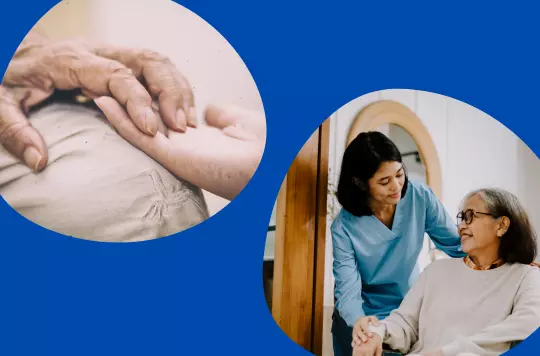The Salvation Army’s missional statement is to ‘Love God and Love Others’. Therefore there will be times when we are called to help and protect those in our care. In this reflection we will consider scriptural truths that helps us understand the motivation and ministry of Befriending.
Befriending is the local corps or centre making a difference and attempting to bridge a gap to reach those ‘others’ who would not normally connect with ministries such as lunch clubs, Over-60s clubs or any other older people’s groups. There might be a variety of reasons why older people are not engaging in existing services, and Befriending isn’t only about making friends with others in order to grow our numbers in our existing services and groups. It is about being able to signpost people to other services of interest.
Befriending is a ministry which is over and above your normal pastoral corps rhythm. Befriending is about outreaching to others in the community who would not normally cross the doorstep of our churches.
‘Loneliness and the feeling of being unwanted is the most terrible poverty.’ – Mother Teresa.
God is a God of relationship and community. That is evident in his very nature. He is the Trinity – three in one: God the Father, God the Son, God the Holy Spirit. In the opening chapters of the Bible God established that ‘It is not good for the man [Adam] to be alone’ (Genesis 2:18). His solution? God continued, ‘I will make a helper suitable for him’ (Genesis 2:18b). He brought Eve to Adam and they ‘become one flesh’ (Genesis 2:24). We are designed to be in community with God and with one another. Perhaps that is why loneliness hits us the way it does.
God’s people are not exempt from the pain of isolation and loneliness. David was well acquainted with it, and his honest cries to God are recorded in the Psalms. These words from Psalm 25:16-21 show David’s longing to be connected to God and his reliance upon that relationship:
‘Turn to me and be gracious to me, for I am lonely and afflicted. Relieve the troubles of my heart and free me from my anguish. Look on my affliction and my distress and take away all my sins. See how numerous are my enemies and how fiercely they hate me! Guard my life and rescue me; do not let me be put to shame, for I take refuge in You. May integrity and uprightness protect me, because my hope, Lord, is in you.’
Throughout the Bible we see that connection with God and other followers of Jesus is good and desirable, and preferable to being isolated and alone. The psalmist wrote: ‘How good and pleasant it is when God’s people live together in unity! … For there the Lord bestows his blessing, even life forevermore’ (Psalm 133). Jesus assured his disciples, ‘For where two or more gather in my name, there am I with them’ (Matthew 18:20).
In 1 Peter 2:9 Peter wrote: ‘You are a chosen people, a royal priesthood, a holy nation, God’s special possession, that you may declare the praises of him who called you out of darkness into his wonderful light.’ The function of priests was to connect the Jewish people with God. The Law was clear that priests were to be from the tribe of Levi (it is interesting to note the Hebrew word levi means ‘connect’) and there were strict rules in place about who could approach God on behalf of the people, and when and how. Jesus came and changed all that. In a dramatic scene from the death of Jesus, we read that ‘The curtain of the temple was torn in two from top to bottom’ (Mark 15:37-38).
What is the significance of the Temple curtain? This is the curtain that separated the people from the holy of holies. Only certain priests could step into that sacred space. In ripping open the curtain, God communicated that the old priestly order was over so that now we are all priests in a ‘priesthood of all believers’. No matter our age, God’s plan is for all of us to proactively live these connections and that priestly calling.
In the New Testament we see Jesus enter the scene as the great friend of ordinary people, those on the fringes, by doing intentional befriending and restoring people to God. He said: ‘Greater love has no one than this: to lay down one’s life for one’s friends’ (John 15:13).
That allows us to see corps/centres Befriending programmes in that light. It can mean that each of us connected with God, connecting with our communities, can become formal or informal befrienders in our cities, towns and villages. In doing so, we find ourselves not only restored in friendship to God, but also in a community of people who are themselves friends of God and made in his image.
The narrative of the Gospel story outlines that friendship is identified as integral to being human. Friendship is that potential for the ‘love of neighbour’ encouraged within the Scriptures with authentic befriending which nurtures compassion, wisdom, freedom and hospitality. As such, it also emerges as a ministry that contributes to civic friendship and local connections.
The local corps or centre has great potential for friendship with one another. We also have a mission to invite other people to be connected in friendship.









